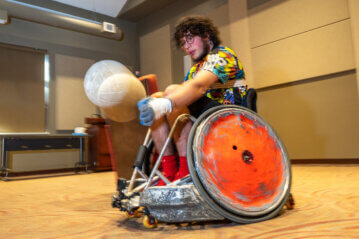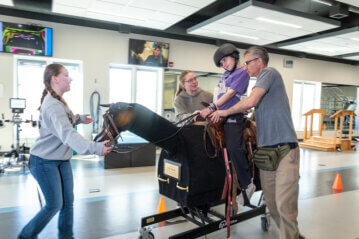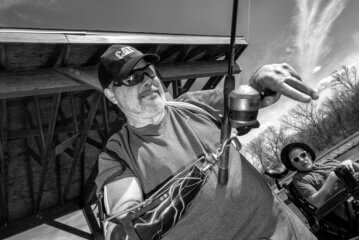Think about sports or recreational activities and what it takes to complete them. At first glance, you might say they take the use of arms and legs along with decent coordination, but the truth is that none of these are needed. What is ultimately required is desire and a thirst to achieve, whether that be to resume participation in activities that are and provide satisfaction, or to compete professionally with top national or international athletes. Nothing is impossible through adaptive sports.
Almost by definition, adaptive sports reorient recreational and athletic activities by finding new ways to achieve usual results. The emphasis is on fostering enjoyment and in turn, the hope and optimism that
“By 2006, QLI participated in all kinds of activities with clients,” says Coordinator of Adaptive Sports Ed Armstrong. “It was embedded in Life Path Services. But there wasn’t a centralized home for these interests. It made sense to expand a little and grow from there. The scale is what has changed.”
At QLI, the Adaptive Sports Lab is the starting place for exploring new ways of engaging in sports and recreational activities. Here, clients can be a part of a cycling group, etching miles biked on a simulation, or they can utilize virtual reality technology to simulate canoeing or kayaking. With a mini-rock climbing wall, there is an opportunity to practice donning safety equipment scaling a wall. Many of these activities are then extended through community partners. HETRA provides equine therapy, Approach Climbing Gym gives clients the experience of scaling heights once more, and partnership with the City of Omaha Parks and Recreation 
Even further, there are avenues through which athletes and competitors can reengage their competitive urges and push themselves to the max, something that has been fostered over the years through QLI’s wheelchair rugby program. This program has unified numerous people with spinal cord injury from different backgrounds and sports disciplines in a common pursuit.
The goal isn’t just to try out a new sport; instead, it’s to allow people to rediscover their competitive edge. People involved with the wheelchair rugby program motivate other through their recovery while simultaneously engaging with the national network of support the sport offers and with QLI alumni who
Categories: Adaptive Sports, Brain Health, Brain Injury, Spinal Cord Injury, Stroke
